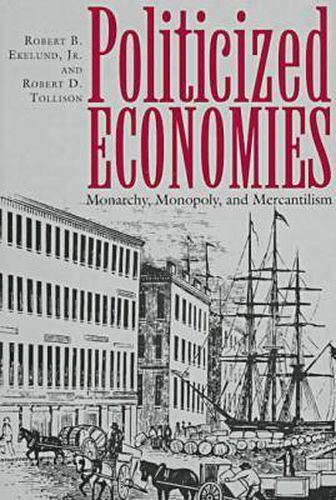Readings Newsletter
Become a Readings Member to make your shopping experience even easier.
Sign in or sign up for free!
You’re not far away from qualifying for FREE standard shipping within Australia
You’ve qualified for FREE standard shipping within Australia
The cart is loading…






In this highly readable analysis, the authors use positive-economics principles to show how the supply and demand of monopoly rights from the state (rent seeking) provided first the impetus for European mercantilism and later the reasons for its demise in England and entrenchment in France. The balance-of-trade objective, treated by most historians as a primary motive for mercantilism, is shown instead to be the by-product of self-interested parties’ seeking of rents. In addition to questions of the causes and results of economic regulation, this thoughtful book raises issues in the methodology of economic history and history of thought generally. Public-choice theorists, political economists, and economic policy makers will likewise find it instructive and stimulating.
$9.00 standard shipping within Australia
FREE standard shipping within Australia for orders over $100.00
Express & International shipping calculated at checkout
Stock availability can be subject to change without notice. We recommend calling the shop or contacting our online team to check availability of low stock items. Please see our Shopping Online page for more details.
In this highly readable analysis, the authors use positive-economics principles to show how the supply and demand of monopoly rights from the state (rent seeking) provided first the impetus for European mercantilism and later the reasons for its demise in England and entrenchment in France. The balance-of-trade objective, treated by most historians as a primary motive for mercantilism, is shown instead to be the by-product of self-interested parties’ seeking of rents. In addition to questions of the causes and results of economic regulation, this thoughtful book raises issues in the methodology of economic history and history of thought generally. Public-choice theorists, political economists, and economic policy makers will likewise find it instructive and stimulating.